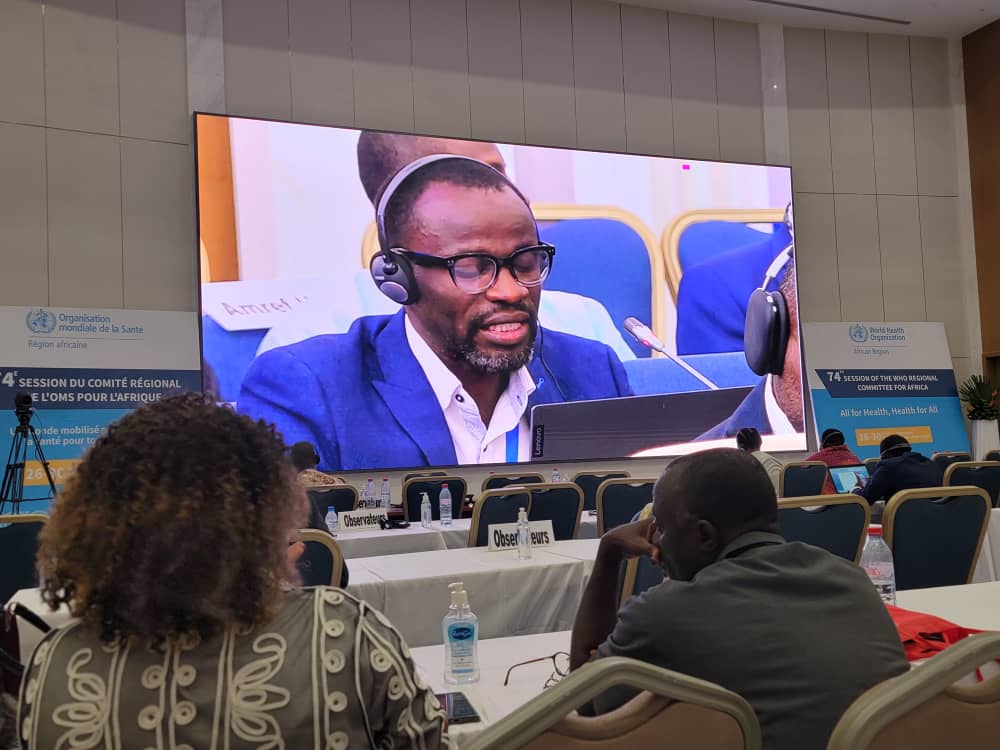
Benjamin Anabila; Director of the Institute of Leadership and Development (INSLA) attended
the 74th Session of the World Health Organization (WHO) Regional Committee for Africa
meeting in Brazzaville, Republic of Congo that occured from the 26th
-30th August 2024.
The Institute of Leadership and Development (INSLA) a member of the Alcohol Policy Alliance
Ghana, affiliated to the West African Alcohol Policy Alliance (WAAPA), welcomed the
adoption of the ‘Framework for Implementing the WHO Global Strategy for Food Safety 2022-
2030 in the African Region. The regional Framework aims to guide Member states in
implementing the Global strategy to accelerate actions towards strengthening national food
safety systems in the African Region.
Mr Anabila emphasized the fact that, public health impact of consuming unsafe food remains
significant worldwide with an estimated 600 million people falling ill and 420,000 deaths
occurring annually. Unsafe food increases the risk of infection and intoxication, creating a
vicious cycle of diseases, malnutrition, and disability, particularly affecting vulnerable groups
such as infants and young children.
He continued to mention that food safety concern is directly linked to the third (3rd) United
Nations (UN) Sustainable Development Goal (SDG), good health and wellbeing, which is a
regional priority. Due to weak and inadequate food control systems, it impedes effective
monitoring of chemical contaminants in food such as heavy metals, residues of pesticides and the
timely detection and response to foodborne events.
He supported the proposed actions outlined in the Framework for Implementing the WHO
Global Strategy for Food Safety 2022-2030 by calling on the African Region to strengthen the
capacity of food safety workforce by investing in food systems that is both safe and suitable for
consumers, minimizing the impact of non-communicable diseases (NCDs) on public health and
preventing them from impeding socio-economic growth.
He also mentioned in his statement that, when Member states and its implementing partners
prioritize consumer awareness campaigns that increase understanding of safe food handling
practices and food labelling would go a long way to empower and protect consumers to make
safe and healthy food choices.
In conclusion, he stated that he was confident that prioritization of enforcement mechanisms,
capacity building of food vendors, food business operators, food safety workforce, continuous
review and improvement of food control systems and strengthening food monitoring and
surveillance will protect consumers and contribute to the accomplishment of the proposed
actions outlined in the Framework for Implementing the WHO Global Strategy for Food Safety
2022-2030 in the WHO African Region.
He called on Member States to ensure the development and comprehensive implementation of
National Food Safety Polices, Strategies and legislations to protect consumers and the
environment.